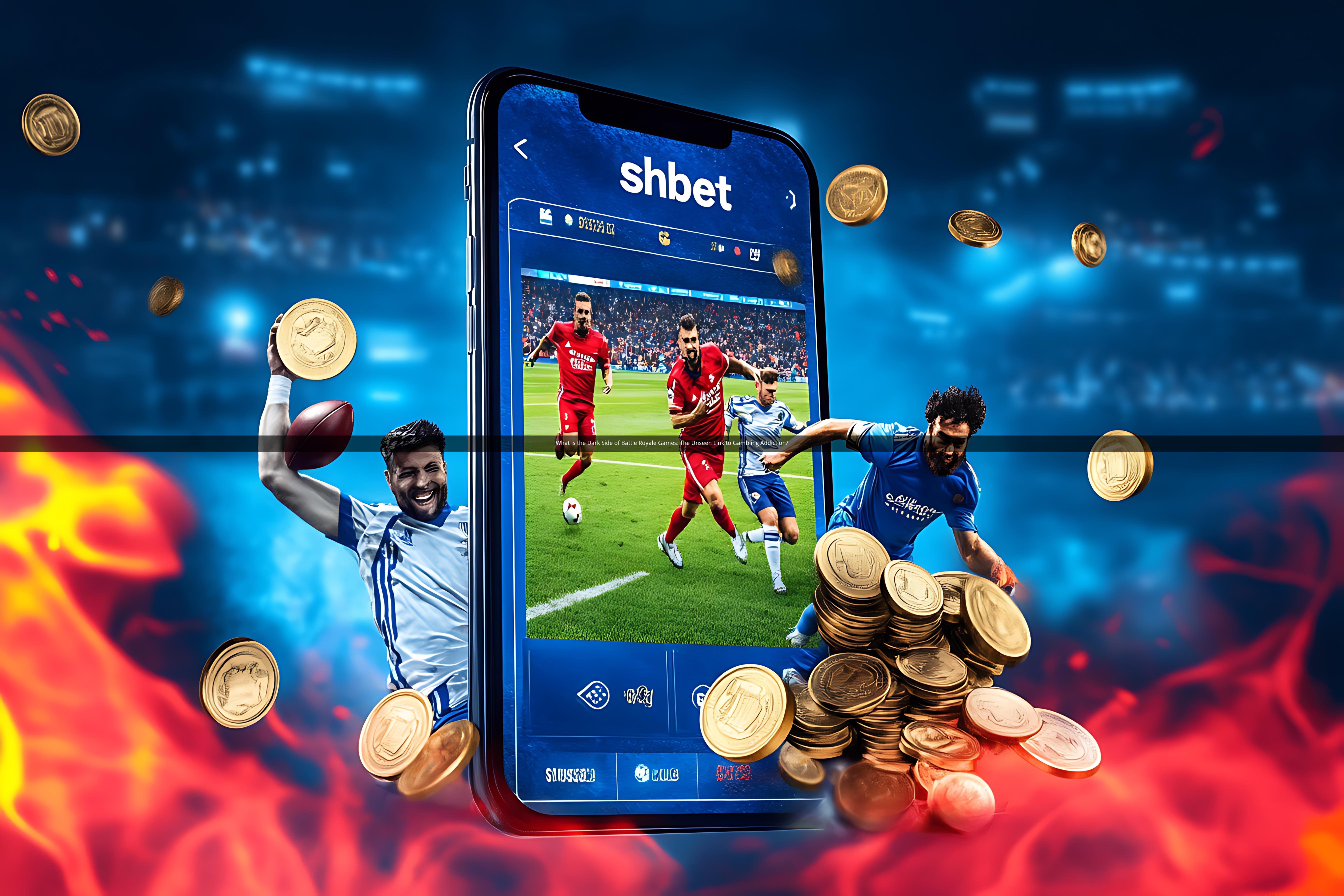
Table of Contents
1. Introduction to Battle Royale Games
2. The Rise of Battle Royale Games
3. The Mechanics of Battle Royale Games
4. The Allure of Gamification
5. The Fine Line Between Entertainment and Addiction
6. The Psychological Impact of Battle Royale Games
7. The Role of Social Media and Peer Influence
8. The Financial Consequences of Gambling Addiction
9. The Legal and Ethical Implications
10. Case Studies: Real-Life Examples
11. Preventive Measures and Interventions
12. Conclusion
---
1. Introduction to Battle Royale Games
Have you ever wondered what it feels like to be dropped into a virtual battlefield, armed with nothing but your wits and a few basic tools? Battle Royale games, such as "Fortnite," "PUBG," and "Apex Legends," have taken the gaming world by storm. These games pit players against each other in a last-man-standing competition, where strategy, teamwork, and a bit of luck are the keys to survival.
2. The Rise of Battle Royale Games
The popularity of Battle Royale games has skyrocketed in recent years. With their simple yet engaging gameplay, these games have captured the imagination of millions of players worldwide. But what drives this surge in popularity? Is it the thrill of the hunt, the social aspect, or something else entirely?
3. The Mechanics of Battle Royale Games
Battle Royale games typically involve a large number of players who are dropped onto an island or map. The objective is to be the last one standing by eliminating other players and finding resources. The game ends when only one player remains, or when a certain amount of time has elapsed.
4. The Allure of Gamification
One of the reasons for the success of Battle Royale games is their gamification. Gamification refers to the application of game design elements in non-game contexts to encourage engagement and learning. In Battle Royale games, players are rewarded for their achievements, such as winning matches or completing challenges, which can lead to a sense of accomplishment and motivation.
5. The Fine Line Between Entertainment and Addiction
While Battle Royale games are designed for entertainment, some players may find themselves drawn into a dangerous cycle of addiction. But how does a game designed for fun become a source of harm? Let's explore the psychological and social factors at play.
6. The Psychological Impact of Battle Royale Games
Battle Royale games can have a profound psychological impact on players. The constant pressure to survive, the fear of failure, and the need to outsmart opponents can lead to stress, anxiety, and even depression. Additionally, the immersive nature of these games can blur the lines between reality and virtual reality, leading to potential mental health issues.
7. The Role of Social Media and Peer Influence
Social media plays a significant role in the spread of Battle Royale games. Players often share their experiences and achievements on platforms like Twitter, Instagram, and TikTok, which can create a sense of community and belonging. However, this can also lead to peer pressure and the desire to keep up with others, potentially leading to excessive gaming and gambling.
8. The Financial Consequences of Gambling Addiction
Gambling addiction is a serious issue that can have devastating financial consequences. In the context of Battle Royale games, players may be tempted to place bets on their chances of winning, leading to significant financial losses. This can strain relationships, cause financial hardship, and even lead to legal problems.
9. The Legal and Ethical Implications
The legal and ethical implications of Battle Royale games and gambling addiction are complex. While some argue that these games are merely a form of entertainment, others believe that they can be harmful, especially to vulnerable populations. It is essential to strike a balance between protecting players and allowing them to enjoy the game.
10. Case Studies: Real-Life Examples
To better understand the impact of Battle Royale games and gambling addiction, let's look at some real-life examples. We'll explore the stories of individuals who have struggled with addiction and the challenges they faced in overcoming it.
11. Preventive Measures and Interventions
To combat the potential dangers of Battle Royale games and gambling addiction, several preventive measures and interventions can be implemented. These include parental controls, age restrictions, and educational programs to raise awareness about the risks.
12. Conclusion
Battle Royale games have become a cultural phenomenon, captivating millions of players worldwide. While these games offer entertainment and social interaction, they also come with potential risks, including gambling addiction. It is crucial to recognize these risks and take steps to protect players, especially younger audiences.
---
Questions and Answers
1. Q: What are some common signs of gambling addiction in Battle Royale games?
A: Common signs include spending excessive amounts of time playing, neglecting responsibilities, feeling restless or irritable when not playing, and experiencing financial difficulties due to gambling.
2. Q: How can parents monitor their children's gaming habits to prevent addiction?
A: Parents can monitor their children's gaming habits by setting time limits, checking their spending on in-game purchases, and having open conversations about the risks of addiction.
3. Q: Are there any legal measures in place to protect players from gambling addiction in Battle Royale games?
A: Some countries have implemented age restrictions and regulations on in-game purchases to protect players, especially minors, from the risks of gambling addiction.
4. Q: How can players seek help if they suspect they have a gambling addiction?
A: Players can seek help by contacting support organizations, such as Gamblers Anonymous, or by speaking with a mental health professional who specializes in addiction.
5. Q: What role does social media play in the spread of gambling addiction in Battle Royale games?
A: Social media can contribute to the spread of gambling addiction by creating a sense of competition and the desire to keep up with others, which can lead to excessive gaming and gambling.